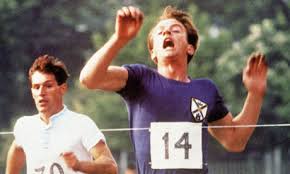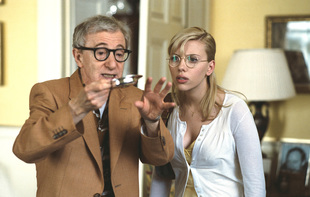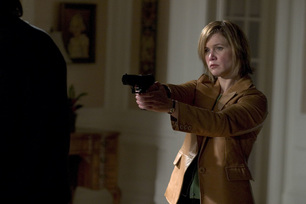 Your Next Script #11 By Charles Harris We're almost there. Over the last ten articles we've developed an idea, worked it up as a treatment, written a first draft and revised it to the point when it's almost ready to send out. But there are two more crucial tasks yet to perform. And the first will often make the most dramatic difference of all. What have you been putting off?This is what I call the X factor. Nothing to do with reality TV, the X factor is both simple yet profound. But only you know what that is. It could be something you've been meaning to cut - such as a sequence or character you love but which you know isn't working. It could be something you know you need to add. It could be some aspect of the script that you're starting to have doubts about. Perhaps the key turning point doesn't do the job as well as it should. Or the premise doesn't totally make sense. It's the thing you've been putting off doing - draft after draft.  The difference between OK and great Listen to the small inner voice that prompts a rethink or addition. Most good writing comes from our unconscious minds. While we need to use our rational editing brain to polish it up, we also have to listen to those deeper instincts. It's natural to be afraid of the amount of work needed. But that extra work may turn out to be the most important work of all. If in doubt... What may seem a trivial change at this stage may even have profound effects. The big difference between a script that's so-so and one that sparkles is often this stage. It's now that the writers who go the extra mile reap their rewards. Kill your darlings In this draft you examine everything you are clutching onto in your script. All too often, at this stage, we find we're still holding onto the very things that we should be letting go. Be brutally honest with yourself - because if you're not I can guarantee that the industry will be. You only get one chance with each possible buyer - producer or agent. Once they've rejected your screenplay, they are very unlikely to look at it again. If in doubt, cut it out So if you have doubts about anything, cut out the scissors. Cut it out and see what happens. (Remember you can always put it back again... But you almost certainly won't). If in doubt, put it in The corollary to cutting what you are thinking of cutting, is to write what you've been avoiding writing. What about that twist that you keep mulling over and putting off because it would involve some extra research? Or the character change that you can't put out of your head, but means rethinking the entire second act? Or maybe there's a seemingly trivial issue that you just can't put out of your mind. What are you shying away from? Changes I've made in this final mini-draft have always brought major improvements. Whether it's writing an emotional crisis that I've been shying away from, because it will be too gruelling (or challenging) to write or rectifying what seems to be a relatively trivial plot hole, I never regret this last run through. One script of mine came to life in a totally unexpected way, simply because I followed the little voice that told me I had to dramatise a flashback from a character's childhood in Jamaica. Even though I thought I was being stupid - we'd never afford the budget for a location shoot in the Caribbean - I wrote the scene. And it worked. Despite my fears, we shot it, for almost no money, on a gloriously sunny day by turning a gravel pits in Hertfordshire into a totally convincing country road near Kingston, Jamaica, and it gives a very special lift to the whole film. Listen to your instincts To sum up: you may think that all the writing is over. But you can be sure that there are a few little loose ends still to be investigated. Now, for one final time, you will gain enormously from listening to your instincts and making those last few changes that make all the difference to your script. We're almost done. One more job to do before we can send it out - which we'll look at in the final article of this series. Charles Harris is an international award-winning writer-director and best-selling author. His new novel - The Breaking of Liam Glass - is to be published by Marble City tomorrow. <previous next>
3 Comments
 By Charles Harris So far, we've developed an idea as far as first draft and in the last article we began to revise it - looking at structure. Now is the time to go back and look more thoroughly at character. The character redraft is a crucial one. Of course, you've been learning about your characters all along - finding out what makes them interesting, credible and engaging. However, in the first draft it was important to let the imagination flow, without too much constraint. As a result, there will be areas that now need to be strengthened and straightened out. The character edit Start with your protagonist. Read through the script focusing only on her. At this point in the process, she will almost certainly be too passive, reacting to events rather than pushing the story forwards herself. So the most urgent task will be to ensure she's as active as possible. If someone opens a door for her, make her open the door herself. Or, at least, insist that it's opened. If someone discovers a crucial clue, see if she can't discover it instead. This is her story. She must drive it forwards. Dealing with her flaws Next, is she growing and learning? Focus on her flaws and ensure that she grapples with them. Unless your story is a noir, a satire or an adventure story, the power of your script will depend on her personal character growth, scene by scene. Of course, this shouldn't be linear: we all have set backs from time to time. And it shouldn't be clichéd. Whatever the genre, you want your characters to be original and full of surprise. Complex and contradictory The third step is to look at how rounded her character can be. When first sketching out the story, your protagonist will probably be fairly simply developed. Perhaps a little two-dimensional. Now is the time to add some more complexity. In addition to her flaws, she should have strengths. Otherwise, why should we care about her? What is she good at? What positive traits could she show? Then there's the way she likes to present herself to the world. Her fears are also important. What is she most afraid of in life? And her darker side: what less admirable things would she be capable of doing, if pushed to the limit? Good characters have a range of traits, some of them contradictory. This adds to the credibility of the story, and also gives her the capacity to surprise us and keep us watching. Using subplots to develop character Some of her traits won't necessarily be visible when she's engaged in the main story, but may only come out when confronted by different characters, perhaps in subplots. A detective, for example, may not be able to show her more human side at work, but only when trying to help her small son cope with moving to a new school. The other roles Once I've thoroughly revised the protagonist, I do the same with all the other characters in the story, large and small. Antagonists are particularly crucial - and easily ruined by making them too flat and predictable. Antagonists must have their own strengths and contradictions - such as intelligence, sense of humour, human feelings, etc. Indeed the strongest antagonists (such as Hannibal Lecter or Norman Bates) may be highly personable and engaging in their own right. Cutting and combining Review the entire story from the point of view of each character in turn, even the smallest, to give myself a chance to bring each to life. In the process, you'll probably find some characters are not needed - perhaps two characters are effectively duplicating each other. Others may disappear too early or arrive too late. Sometimes two half-achieved characters can be usefully combined into one, which is always interesting as the new character will have a greater complexity than the original two. Of course, subsidiary and bit-part characters won't have the same range as the main characters, but they too need freshness, contradictions and the truth that comes from observation of real life. Once you've completed this third (Character) draft, which is in reality many little mini-drafts, you're ready for the next stage - to tighten and speed up the narrative flow - scene by scene. < Previous article Next article > Charles Harris new book Jaws in Space: Powerful Pitching for Film and TV was published last month by Creative Essentials and is already recommended reading on MA courses. You can buy it here and get the e-book version included for free. |
BLOGTHE ONLY PLACE TO TALK ABOUT THE CRAFT OF SCRIPTWRITING.
|
Privacy Policy © Euroscript Limited 2020

 RSS Feed
RSS Feed


